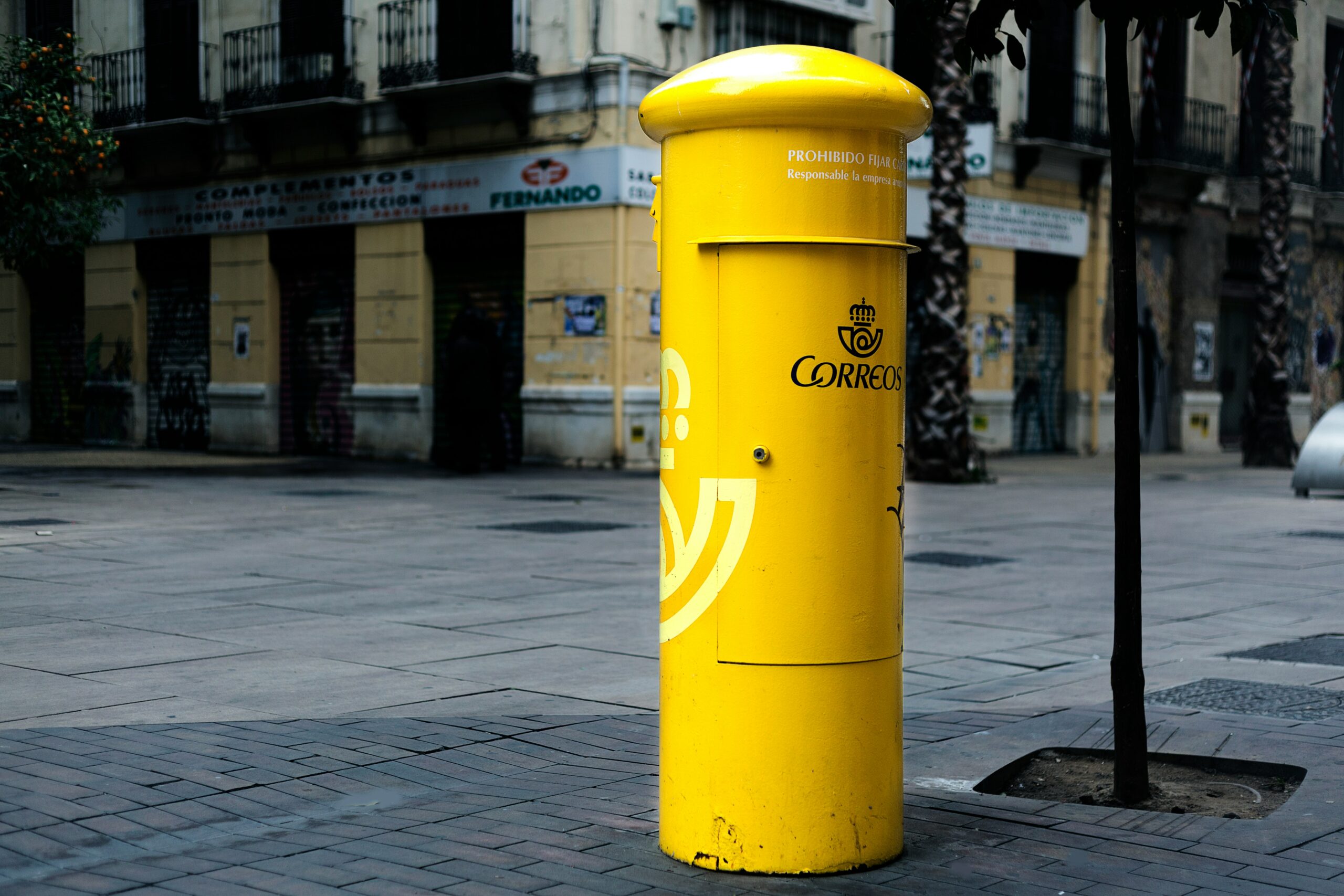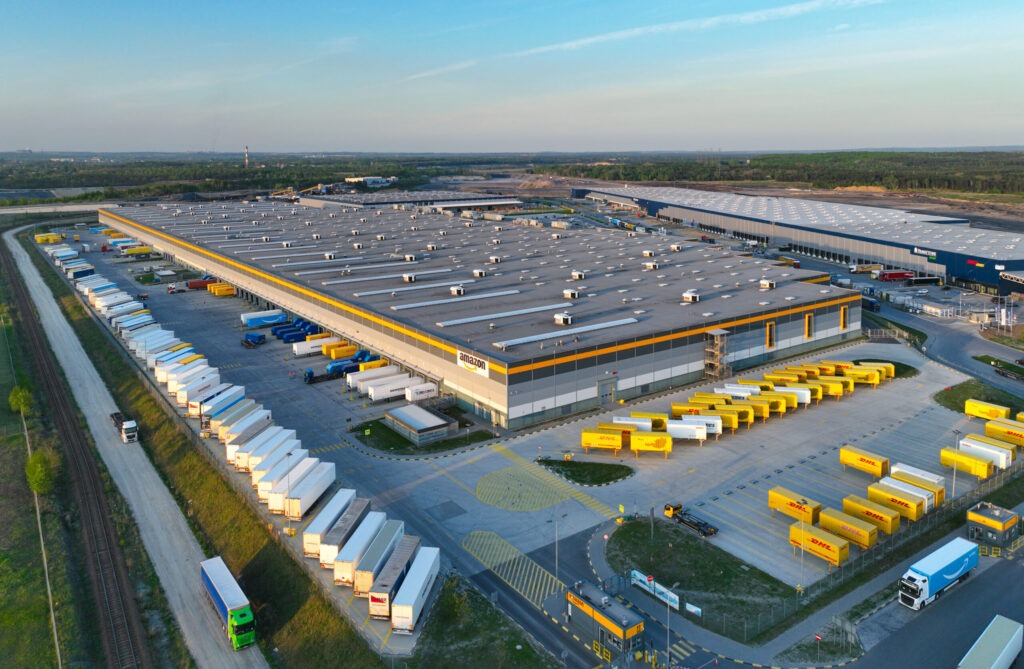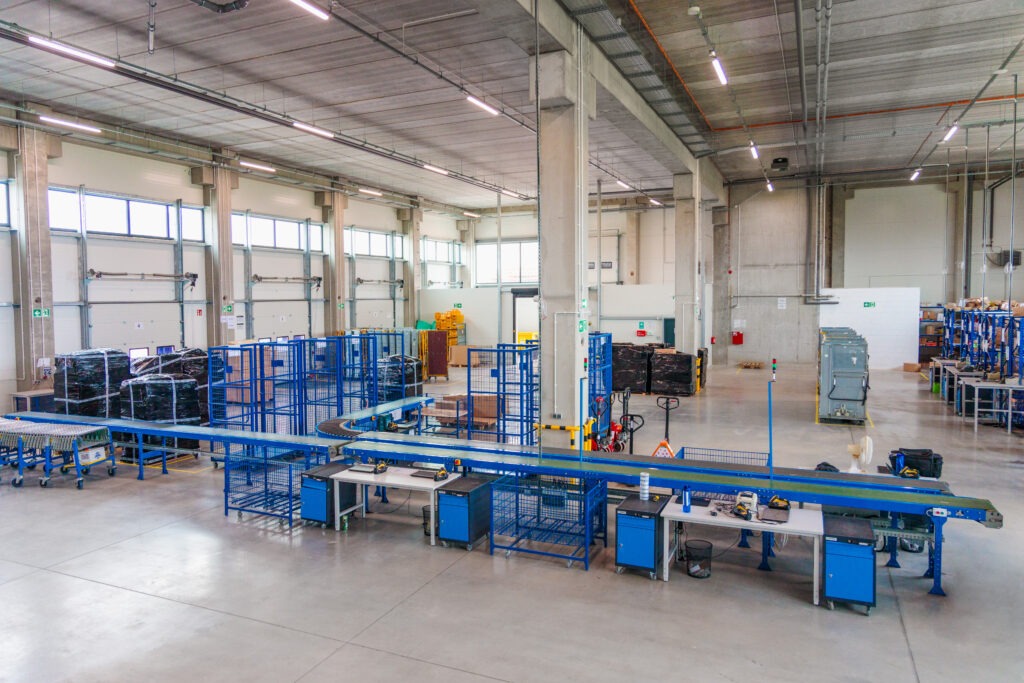Shipping and returns in Spain: which courier will give you the edge?
Spain is a unique market in terms of logistics. On the one hand, densely populated cities with heavy traffic, restricted-entry zones and high expectations of speed of delivery. On the other hand, vast rural areas, island regions and hard-to-reach areas, where the transport infrastructure is sometimes limited and delivery frequency has to be meticulously planned.

Publication date:
What works in the centre of Barcelona will not necessarily work in Tenerife or a small town in Andalusia. This is why logistics systems in Spain need to combine flexibility with full territorial coverage – otherwise they cannot meet the growing demands of online shops and their customers.
The Spanish consumer expects full control over the order, a choice of delivery methods, clear information on delivery times and hassle-free returns. They are an informed customer, demanding and attached to convenience. What’s more, the importance of ecological factors is also growing, with more and more users opting for environmentally friendly solutions, such as collection in parcel machines or delivery by electric vehicles.
In such a logistics reality, the choice of supplier is becoming a strategic decision. It is not just about price or declared delivery time, but about the whole – reliability, flexibility, scalability, availability of local services and quality of after-sales service. For online retailers, this is a foundation that can strengthen the brand – or gradually weaken it.
The e-commerce delivery market in Spain
As one of the fastest growing e-commerce markets in Europe, Spain is becoming an increasingly challenging environment for logistics companies. By 2024, the number of people who regularly shop online has risen to more than 35 million, representing almost 75 per cent of the country’s population. At the same time, the average value of a shopping basket has increased to around €72, reflecting the increasing value of individual transactions and growing customer confidence in the digital channel. In this context, logistics is no longer just the technical back office of an online shop – it is becoming its first line of contact with the customer, an essential part of the shopping experience and a real driver of conversion rates, returns and customer loyalty.
1.1 Structure of the courier market
The delivery market in Spain is highly diversified. It is operated by both global corporations and local operators, each with a different operating model and area of specialisation. The most important players are:
- SEUR (DPDgroup) – with a strong presence in major cities, oriented towards fast urban deliveries, integration of tracking technology and Predict service.
- MRW – a Spanish company with an extensive network of service points and experience in national and cross-border deliveries.
- GLS Spain – a European operator focused on serving the B2B segment and shipments integrated with international trade.
- DHL Express – a global leader in premium services with a dominant position in intercontinental shipments.
- Correos – national operator with the largest geographic footprint, combining traditional postal services with a full courier and digital offering.
1.2 Market dynamics and challenges
The country’s geographic diversity – from dense metropolises to scattered rural areas – means that logistics operators must flexibly adapt their operating models. Urban areas require deliveries that comply with low-emission policies and ‘last mile’ solutions, often delivered by electric vehicles or bicycle fleets. In rural regions, where logistics are more expensive and less automated, reliability and regularity are important.
An additional factor affecting the stability of deliveries is seasonal changes. Black Friday, Christmas and seasonal sales generate surges in parcel volumes that test the operational capacity of many operators. Companies that are unable to adequately increase capacity or do not have sufficient infrastructure facilities often experience delays and service quality issues.
Current market data (2024)
- The projected growth of the e-commerce market for 2024-2028 is 9.9%.
- More than 68% of Spaniards shop online.
- The average monthly spend on e-shopping is €121.
- Residents with internet access: 96%.
- Fashion accounts for 27% of e-commerce revenue, electronics 25%.
- Mobile shopping accounts for approximately 60% of all e-commerce transactions.
SEUR
SEUR, part of the international DPD (La Poste)group , is one of the most recognisable logistics operators in Spain. The company has been operating in the market since 1942, focusing primarily on express parcels, urban services, and serving individuals and small businesses. With a strong presence in urban agglomerations and integration into DPD’s European network, SEUR is a viable alternative for companies looking for efficient logistics in cities and cross-border deliveries.
2.1 Coverage and operational infrastructure
SEUR operates throughout Spain, although its predominance remains urban logistics – particularly in Madrid, Barcelona, Valencia, Seville and Bilbao. The company has more than 1,400 Pickup (PUDO) network points and a well-developed network of sorting and transshipment points, optimised for the rapid movement of parcels.
- Operating and storage centres: 80+
- PUDO outlets in Spain: more than 1,400
- Employment: approx. 8 000 direct and contract employees
- Integration with DPDgroup: access to more than 50 000 collection points in Europe
SEUR also offers zero-emission deliveries in the centres of major cities, using electric vehicles and cargo bicycles, in line with green urban logistics trends.
2.2 Offer of courier services
SEUR has adapted its offer to the needs of the e-commerce market,offering solutions tailored to different business models – from micro-enterprises to large online shops. Key services include:
- SEUR 24: delivery within 24 hours within Spain.
- SEUR 10 / SEUR 13:30: deliveries with guaranteed delivery before a certain time.
- SEUR SameDay: same-day delivery services in selected urban locations.
- SEUR Internacional: fast shipping to more than 200 countries, with tracking and insurance.
- SEUR Predict: dynamic SMS and email notifications with exact delivery time.
For companies using cross-border trade, especially within the EU, a major advantage is the full compatibility of the SEUR systems with the DPDgroup network, enabling easy management of deliveries to France, Germany, Portugal and other member states.
2.3 Technology and ecommerce solutions
SEUR is investing in the development of digital solutions to support online sellers. It offers plug-ins for e-commerce platforms such as PrestaShop, WooCommerce, Magento or Shopify, integrations with marketplaces and access to a B2B portal for the fast handling of large order volumes.
The company has also introduced the SEUR Nowplatform , which allows for real-time ordering of instant delivery – a feature mainly targeted at the catering industry, drugstores and convenience stores.
Limitations
Despite its strong position in cities, SEUR does not offer the same comprehensive territorial coverage as national operators. In rural, mountainous and island areas, deliveries may be limited or subject to longer delays. The company mainly targets the urban ecommerce segment and companies serving B2C customers, so its logistical flexibility outside major centres remains limited.
MRW
MRW (Mensajeros Radio Worldwide), founded in 1977 in Barcelona, is one of the most important logistics operators with entirely Spanish capital. The company has been building its position in the national market for more than four decades, offering fast courier deliveries, high local availability and services tailored to individual customers and the SME sector. MRW stands out in particular for its large number of sending and receiving points, its flexibility and its offer of specialised services.
3.1 Coverage and operational infrastructure
MRW operates throughout Spain, including the Balearic and Canary Islands. It also has partners in Andorra, Portugal and more than 200 countries, as part of an international network of courier partners.
- Number of outlets and franchise points: 550+
- Vehicle fleet: more than 3 300 units
- Employment: more than 10 000 employees and associates
- Distribution and sorting centres: distributed throughout the country
- Coverage: 100% of the Spanish mainland and island regions
The company operates under a mixed management model – central and franchise– which allows services to be adapted more quickly to local conditions, but at the same time requires constant quality control of processes.
3.2 Offer of courier services
MRW offers a wide range of services differentiated by delivery time and type of parcel:
- Urgente 8:30 / 10:00 / 14:00 – deliveries with guaranteed delivery before the indicated time.
- Día Siguiente – standard next working day delivery service.
- Entrega en Sábado – delivery on Saturdays.
- MRW Internacional – international shipments with a delivery time of 24 to 72 hours (depending on the country).
The MRW offer also includes a service for specialised shipments:
- MRW Mascotas – certified transport of pets.
- MRW Salud – transport of medical and pharmaceutical materials under temperature-controlled conditions.
- MRW Laboratorio – services for diagnostic laboratories.
- MRW Eventos – logistics tailored to industry events, fairs and exhibitions.
3.3 eCommerce solutions and technology tools
MRW is actively developing services aimed at online shops. The company provides integrations with the most popular sales platforms (WooCommerce, PrestaShop, Magento, Shopify) and external ERP systems. It enables the generation of labels, shipment management and the creation of operational reports in a dedicated customer panel.
In addition, MRW offers:
- SMS/email notification system with shipment status information.
- API tools for order automation.
- End-customer return service (Devolución Fácil) – return of a parcel without printing a label, with flexible shipping location.
Limitations:
- Lack of own international logistics infrastructure – dependence on external partners.
- Lower level of automation than global operators.
- Operational scale limited during seasonal peaks (e.g. Black Friday).
- Less extensive fulfillment and warehousing services.
GLS Spain
GLS Spain is part of General Logistics Systems – one of the largest courier companies in Europe, part of the Royal Mail (UK)group. It has been operating in Spain since 2005, serving both individual customers and companies, with a particular focus on the B2B segment. GLS emphasises precise service, punctuality and strong integration into the international logistics network.
4.1 Coverage and operational infrastructure
GLS Spain has a stable, well-organised logistics structure throughout Spain, although it records its greatest operational intensity in the main industrial and urban regions.
- Number of partner agencies and logistics points: over 360
- Hubs and distribution centres: 39 (including the main ones in Madrid and Barcelona)
- Transport fleet: around 5,000 vehicles (own and subcontracted)
- Coverage: national and European (more than 40 countries)
- Delivery time in Europe: 24-72 hours
The company also has a well-developed network of PUDO and parcel pick-uppoints – ParcelShops, which fits in with its strategy of developing ‘out-of-home’ deliveries.
4.2 Offer of courier services
GLS Spain focuses on fast and reliable parcel delivery, mainly in the standard parcel and contract logistics segments. The main services include:
- GLS BusinessParcel: domestic and international parcels, standard B2B service.
- GLS EuroBusinessParcel: fast delivery within the EU, with tracking and insurance options.
- GLS ShopDeliveryService: delivery to parcel collection points (partner shops).
- GLS FlexDeliveryService: flexible delivery with the option to change the time and place of delivery.
GLS also works with ecommerce platforms and marketplace operators, integrating with ERP systems and WMS (Warehouse Management System) solutions.
4.3 Technology and support for ecommerce
GLS offers a range of technology tools to facilitate online ordering:
- Integrations with PrestaShop, WooCommerce, Magento, Shopify and other platforms.
- Track&Trace system with real-time updates.
- Email and SMS notifications of shipment status.
- Access to reporting system and performance indicators (KPIs).
Dedicated logistics solutions, including warehousing and returns management, are available for shops with a constant volume of shipments.
Limitations:
- Less flexibility at local level compared to Spanish-owned companies.
- Limited presence in rural and island areas.
- Lack of advanced specialised services (e.g. medical, animal, event).
- Less availability of Saturday or same-day delivery.
Correos
Correos is an operator with national status whose role in the Spanish logistics system goes far beyond standard parcel delivery functions. As the only player in the market, the company combines the functions of a public institution with a modern ecommerce operator. Thanks to its scale of operations, technological integration and strong geographical footprint, Correos has become a key pillar in the development of ecommerce and cross-border logistics in Spain.
5.1 Coverage and operational infrastructure
- 2,370 fixed offices – located in cities, municipalities and neighbourhoods, they are the main point of contact for residents with logistics, financial and public services.
- 6,011 mobile field units – provide regular service in localities with less accessible public services, including rural and mountainous areas.
- 8,381 service accessibility points – includes partner outlets, local agencies and parcel collection points.
- 15,084 courier vehicles – the fleet includes low-emission, electric vehicles and vehicles suited to last mile urban logistics.
- 18 automatic sorting centres – equipped with state-of-the-art scanning, sorting and route optimisation systems.
- 1.849 billion shipments per year – a figure that makes Correos the largest operational player in the country.
- 50,822 employees (FTE) – a team made up of deliverers, drivers, logistics operators, IT specialists, customer advisors and administration.
- 5,468 daily routes – they link the national logistics system, guaranteeing daily service to all areas of the country.
5.2 Offer of courier services
Domestic services:
- Paq Today – enables same-day delivery, mainly in large cities; ideal for eCommerce quick delivery segment.
- Paq 10 / Paq 14 / Paq 24 – guaranteed next-day delivery, with delivery before the indicated time (e.g. by 10am or 2pm).
- Paq Estándar – an economical delivery option at a reasonable time and an attractive price.
- Paq Ligero – lightweight parcels up to 2 kg delivered directly to the letterbox.
- Paq Retorno – simplified return process with label generation and no-cost posting at any point.
- Cold Post – a specialised service for the transport of temperature-controlled goods, including pharmaceuticals, cosmetics and foodstuffs.
- Correos XL – deliveries of bulky items that require loading by two people, e.g. furniture and large household appliances.
- Express Islands / Maritime Islands – fast deliveries to the Balearic Islands and the Canary Islands by air or sea.
- Baggage Service – dedicated option for company and document shipments with proof of contents.
Fulfillment and stock management:
Under the Correos Logistics brand, the operator offers a full chain of logistics services:
- Vendor collection – flexible scheduling, in-house fleet, system integration.
- Warehousing and inventory (WMS) – automated inventory management, batch tracking, product location.
- Order picking and packing – including labels, advertising material and branding.
- Domestic and international distribution – integration with Correos and Correos Express services.
- Returns management (reverse logistics) – collection, quality control, re-stocking or disposal.
Services are also available as white-label, i.e. with full customer branding.
5.3 Technology and support for ecommerce
Correos invests consistently in the digitalisation of services.
- Citypaq API – enables integration of parcel machines with online shop systems, automatic tracking and notifications.
- Mi Oficina Virtual – platform for handling shipment operations, invoicing and KPIs for business customers.
- NEXO – digital communication tool for administration and corporations, with electronic signature and document registry.
- eCommerce integrations – ready-to-use plug-ins for Shopify, WooCommerce, Magento, PrestaShop, Amazon.
These solutions allow online shops to manage logistics directly from their own sales system.
Strategic relevance
Correos is not just a supplier. It is the primary infrastructure for online commerce in Spain. It is the only operator to provide full coverage of the country – regardless of population density. It allows companies to go international from a single integration, combines logistics with administration and handles more than 1.8 billion shipments a year. Its scale, reach, digital offering and social responsibility make it a pillar of the modern e-commerce and public services ecosystem.
We ship to Spain from Correos: if you are looking for a proven local logistics partner, get in touch!
Who to choose in the Spanish market?
The differences between courier operators in Spain do not end with price and delivery time. The key question is: what does the seller gain (or lose) in practice by choosing any of the proposed ones?
SEUR focuses on speed and urban efficiency. It has the advantage of flexible same-day delivery and strong integration with predictive systems – giving the customer dynamic information about delivery times, reducing frustration and lowering queries to the BOK. For ecommerce offering impulsive products or competing on ‘lead time’, SEUR can be a sales advantage. The downside, however, is coverage limitations – if the customer lives outside a large metropolitan area, delivery time and quality can be more difficult to predict. In practice: SEUR is great for supporting conversion at the purchase stage, but can fail in scaling delivery to less urbanised regions.
MRW represents the local model with a human face. For brands building customer loyalty through direct contact and a flexible approach, its franchise structure works to their advantage. MRW will work well where personalised service and adaptation to local realities are needed, such as in city logistics, niche industries or products requiring special treatment (medical transport, animals). The value here is adaptability, but the disadvantages are limited automation, lower efficiency during seasonal peaks and lack of an in-house international infrastructure. It is a partner for companies that value relationships over scale.
GLS Spain gives an edge in cross-border logistics. With its European network and high delivery standards, it is ideal for retailers operating in several markets simultaneously. It does not offer innovative solutions for the end customer, but its strength is its reliability and predictability – and this is crucial in B2B and for exporting. For ecommerce trading heavily with the EU, GLS provides consistency of service and a low error rate. Its limitation is a lack of fast, city-based services and weaker support in the domestic market outside major cities. Value: strong foundation for international growth, less flexible domestically.
Correos, on the other hand, is not just a courier – it is a full operational infrastructure that can become a company’s‘external logistics department’. For shops looking for a single, consistent platform for everything – shipping, returns, storage, communication, invoicing and customer service – Correos is unique. Its advantage comes from integration: one contract, one panel, one operator and access to every postcode in the country. It is the only one to offer its own airline, its own fulfillment and its own IT solutions. In practice: the company does not need to use separate operators for warehousing, labelling systems or customs brokers. In addition, its reach eliminates the need to compromise between urban and rural – delivery looks the same everywhere. At the same time, Correos is more of a strategic choice than a tactical one – not always the cheapest or fastest, but the most comprehensive and secure in the long term.
Conclusions:
- When instant delivery and marketing based on “24-hour delivery” counts. – SEUR is worth considering.
- When customer relationship and flexibility in regions is an advantage – MRW will work.
- When export and B2B cooperation are key – choose GLS.
- When you are looking for a comprehensive, scalable, reliable and digitally integrated solution – Correos is the choice.
It’s not the delivery time that makes an operator better – but its impact on the entire customer service ecosystem. And that differentiates each company.
Logistics is not a technical choice but a strategic one
The Spanish market, with all its geographical and cultural diversity, demands much more from online retailers than an attractive product offering. In practice, what distinguishes shops that scale sales from those that stop at the local level is the quality of logistics. And it is not just about how quickly the parcel reaches the customer, but how comprehensively the entire delivery process fits into the brand’s strategy, its operations and users’ expectations.
Each of the operators analysed – SEUR, MRW, GLS Spain and Correos – has its own characteristics and strengths. They can be used in different business models, depending on where the shop operates, its customer profile and its growth ambitions. Operators such as SEUR or GLS provide value with dynamic, fast, urban or international customer-oriented operations. MRW, on the other hand, gives flexibility and localisation – ideal for shops that value contact and responsiveness in the region.
However, it is Correos, as a national operator, that has the potential to become not just a service provider, but a real partner in ecommerce development. Its completeness – from full territorial coverage, to digital integrations, to fulfillment and green transformation – means that it can take on not just delivery, but much of the operational burden of running an online business in Spain. And in a world where time, control and quality have a direct impact on margins and customer loyalty, such synergies with the supplier can become a key competitive advantage.
When you choose a provider, you are not just choosing a service. You are choosing stability, scale, reputation and the ability to deliver on the promises made to customers. And in the eyes of the consumer, it is these promises that are most important.
Categories:
Do you want to be up to date?
Subscribe to the newsletter
Subscribe to the CROSS-BORDER LETTER newsletter! Learn about news, tricks and secrets in foreign logistics. Check how to sell abroad and achieve more benefits.






